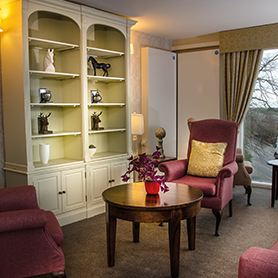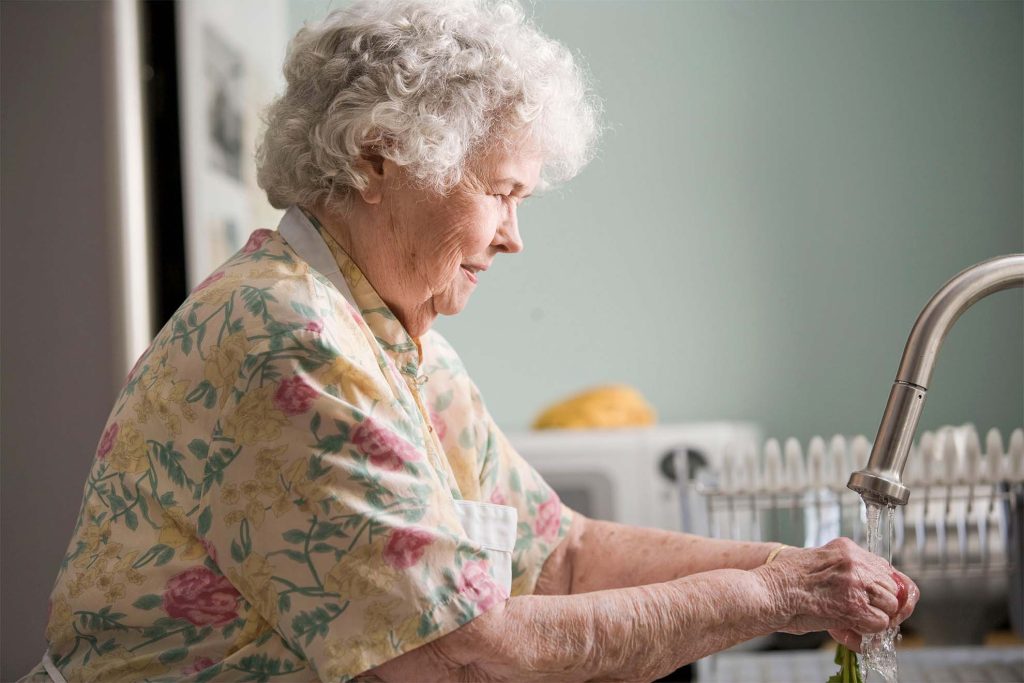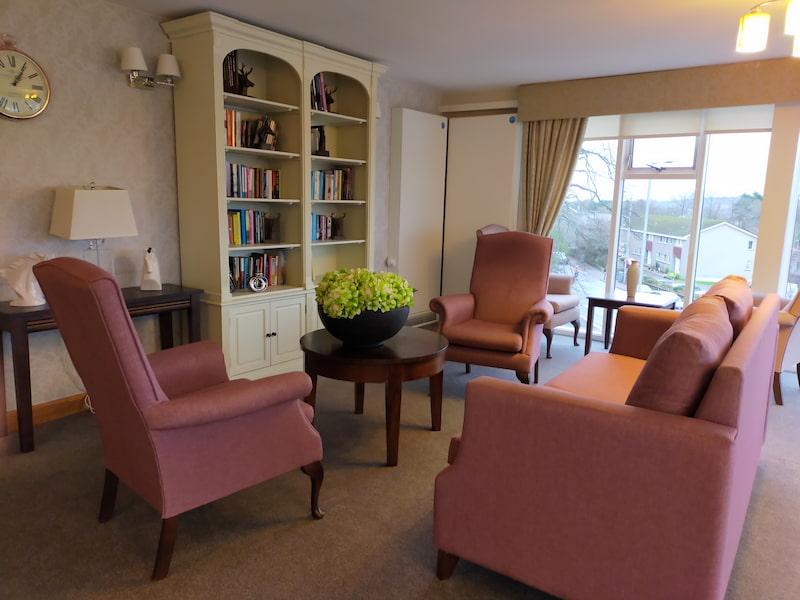What Does a Dementia-Friendly Care Home Look Like?

A majority of public and private care homes in the UK provide dementia care for those living with dementia. It is, therefore, essential that a care home has a dementia-friendly design throughout. This can make a significant difference to the quality of life of someone experiencing symptoms associated with dementia. From the colour scheme to the background noise down to the cutlery used during meal times, there is so much that can be done in care homes to help residents living with dementia feel relaxed and comfortable in their environment.

The Dementia Service Development Centre (DSDC) located in the University of Stirling, has created Computer Graphic Imagery of a virtual care home which demonstrates how the rooms in a care home should be decorated to support a positive home environment for people with dementia.
Below are the most common components that should be implemented to make a care home more dementia-friendly.
Coloured Bedroom Doors
Those with dementia living in a care home can find it difficult to remember where their bedroom is as all bedroom doors look the same. This can leave them feeling confused and stressed. Decorating the corridors like a typical residential street can help residents to remember their steps. For example, attaching fake road signs and nostalgic British adverts attached to the walls, and painting different coloured doors can help residents to recognise a common word or colour every time they go to their room.
Dining
Simple, everyday tasks such as eating can be a challenge for dementia residents, especially as their coordination skills weaken, making it more difficult to use regular cutlery. Care homes and nursing homes can offer special cutlery and plate guards to help with ease when eating and reduce spillages. Food that can be picked up and eaten with fingers can also be a suitable alternative from time to time.
A Safe Setting
Many residents living with dementia feel unsteady on their feet and are therefore more likely to experience a fall which can be detrimental to someone’s health if unsupervised. Someone living with dementia will have an increased risk of falls due to reduced mobility, a change in appetite, lack of sleep, or false perceptions of distance, therefore care homes can offer a safe space to ensure residents are fully supported around-the-clock.

Using contrasting colours for furniture can help residents to detect clearly where the seats are. If a sofa or chair matches the colour of the wall and the floor, it can be hard for residents to distinguish between the two, so its crucial seating stands out using contrasting colours to the floor and a cluttered floor should be avoided. Natural light is also very important within each room and noise levels such as background noise should be kept to a minimum to provide a quiet space to reduce stress and agitation which are common symptoms of dementia.
Although every resident living with dementia will require a level of personal care and support depending on their progression, many care homes encourage residents to live as independently as possible therefore paying attention to the little things in a home will benefit those who get easily distracted or stressed from their environment. The layout of a bedroom should ensure that the en-suite bathroom is visible from the bed, that doors and toilet seats are coloured and that support rails are prominent throughout.
Dementia Friendly Activities
It’s important that care homes offer activities that are suitable for people with cognitive impairments. Activities such as dancing and listening to music can bring a sense of nostalgia, and often residents will be able to recall dance moves and lyrics from their past. All residents should remain active so partaking in regular exercises such as walking and swimming will provide a plethora of mental and physical benefits.

Sharing life experiences and photos from the past can spark memories and encourage residents with memory loss to reminisce about a significant time in their lives. Residents can create a memory box full of items from their past that they can revisit time and time again to stimulate positive emotions.
Family members of residents can join in on the activities and events being offered in care homes, so that they can create lasting memories with their loved ones and spend time with those who are familiar to them.
When Should Someone With Dementia Move to a Care Home?
It is common for a person with dementia to be admitted to a care home as symptoms develop and the primary caretaker is no longer able to look after them. This will differ from person to person as every situation is different, and the condition progresses more slowly in some cases compared to others. It also depends on the type of Dementia.
If you are unsure about whether your loved one should move to a care home, you can talk to your local council. Local councils will visit a person's home, discuss the needs of the individual requiring care and carry out a care assessment to decipher the level of care required. The local authority will then refer you to suitable care facilities in the local area where you can visit the care home and chat with the home manager to find out exactly what they can offer your loved one, including the level of care, facilities available and weekly cost of care before making an informed decision.
Dementia Care at Deeside Care Home
Deeside Care Home in Aberdeen is a luxury, purpose-built care facility for older people. We provide around-the-clock residential care, dementia care, nursing care and respite care at all hours of the day and night, as well as an enriched lifestyle for residents. Our dedicated team works hard to ensure our residents feel safe and content at all times. Our care home has been carefully designed for people living with dementia, and our care home staff has received extensive training in order to provide high standards of care.
If you would like more information on the dementia care we provide at Deeside Care Home, do not hesitate to get in touch with our friendly team who will be happy to assist you.





